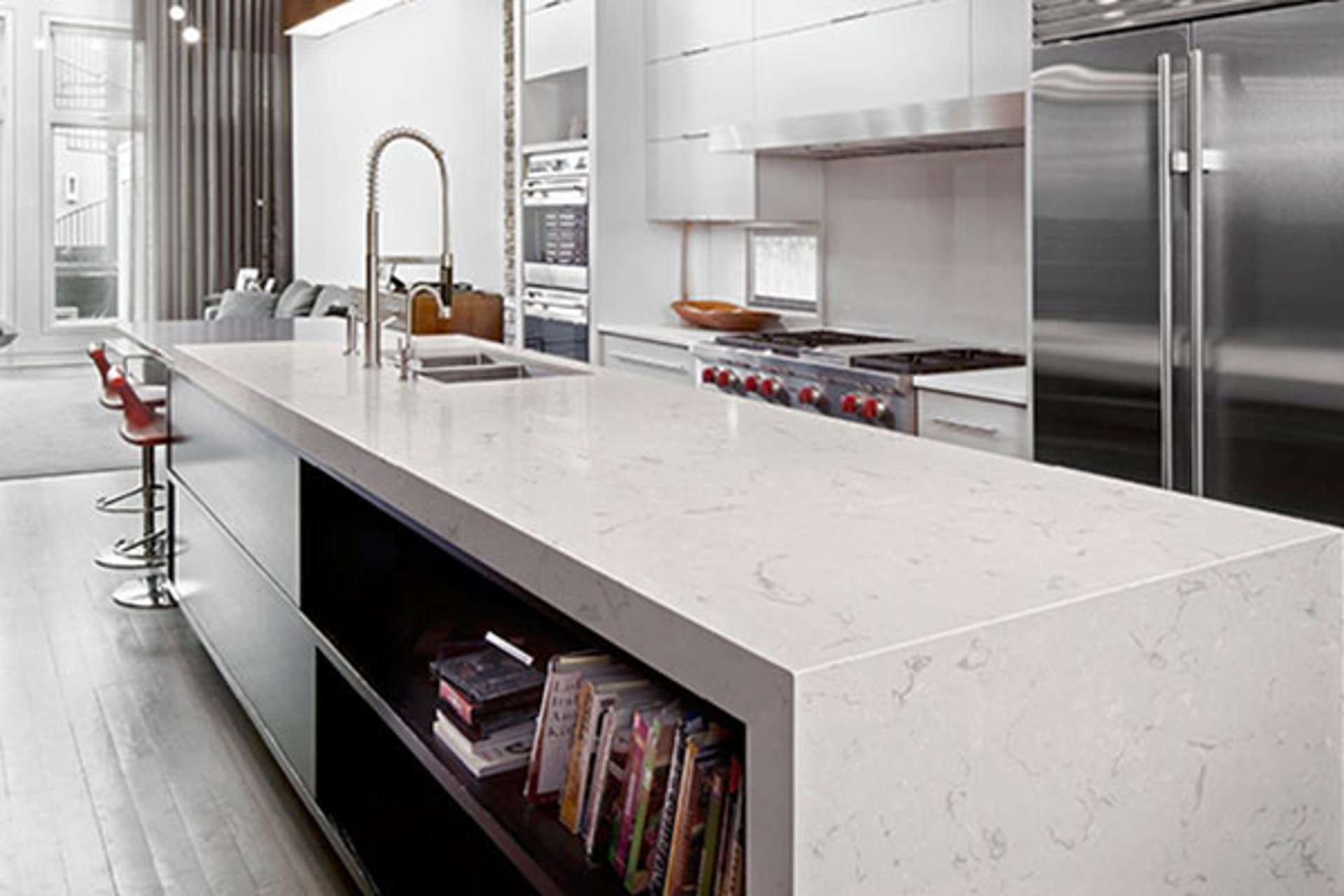
Blog
How Thick Are Slate Countertops
Deciding the thickness of a stone is an important decision as it will affect the functionality and style of your kitchen or bathroom. Homeowners need to take several questions into consideration.
How often will the countertop be in use?
What is the difference between thick and thin slate countertops?
Which thickness is the most affordable?
These questions are often things a homeowner may not be thinking of when looking at the thickness of countertops, but they are pivotal for their long-term care and maintenance.
That is why we are going to help you answer these questions, and more so you can speak with our fabricators about how thick you want your slate countertops to be.


Why is Thickness Important with Slate Countertops
Thickness is important with slate and all types of stone countertops. The different thickness levels of slate will determine how durable and reliable it will be for your home.
How Options Does Slate Come In
On average, slate countertops can be installed in 2 different sizes. Each size has its own strengths and weaknesses that must be considered before installation.
3/4" inch (2 cm)
This is the average and standard size for slate countertops. At this depth, slate has its moderate resistances and overall great durability and looks good for any type of interior design scheme.
1 1/4" inch (3 cm)
This is the thickest size for slate countertops. At this size, slate is heavier to move and install, but looks impressive and can handle active use with heavy traffic in the home.
Pros and Cons of Thin Slate Countertops
Thin slate countertops may not seem appealing at first, but they have more benefits than one would realize when you understand its structure and composition. That being said, there are a few weaknesses that homeowners should be cautious of when installing thin tiles or slabs.
Pros
Explanation
Light Weight - With a lighter frame and structure, thin slate countertops are easy to transport and carry.
Affordable - Thinner tiles and slabs are usually cheaper than heavier slabs or tile of slate
Easy to Install - The combination of less weight and easy transportation makes a thin slate easier to install.
DYI - Homeowners can more easily install thin tiles themselves with a reduced risk of injury.
Versatile - Thin slate tiles can be used in more locations in the house for insulation, layering, or as a floating countertop space.
Longer Overhang - Thin slate slabs can have a longer overhang without supports.
Aesthetically Appealing - Thin slate countertops are widely used in modern interior design schemes like contemporary, minimalist, or transitional spaces.
Cons
Explanation
Fragile - The light weight and thinner composition mean the tiles and slabs are more easily damaged and prone to chipping or breaking. For example, leaning too hard on an overhang could break the slate.
Limited Use - Homeowners need to take more caution using thin pieces of slate to avoid damage.
Replacement - Depending on the level of damage with thin slate tiles or slabs, the whole countertop may need to be replaced when damage continually occurs.
Pros and Cons of Thick Slate Countertops
Thick slate countertops encompass the average and larger sizes of countertop depth. These countertops are also well balanced with advantages and disadvantages where both should be considered before purchase.
Pros
Explanation
Durable - Thick slate countertops are much more durable where they can resist damage for active use
High Resistances - Slate with more layers in its slab have more resistances to scratching, chipping, and heat.
Status Symbol - When thick slabs of stone like slate or marble are installed in a home, it is commonly seen as a symbol of wealth and status.
Bold Appearance - Thick slate countertops have a striking appearance and can be customized with more edging options.
Cons
Explanation
Heavier - Thick slate slabs are heavier to move, making it dangerous for DIY projects and for transportation as it can damage laborers or vehicles.
Harder to Install - Bigger pieces of slab need more time to fabricate to fit the countertop, move, and lay into place.
Expensive - Thicker pieces of slate will be more expensive and can be very costly if a homeowner is on a budget.
Requires Support - Thick slate countertops will need more support struts for an overhang to keep it stable.